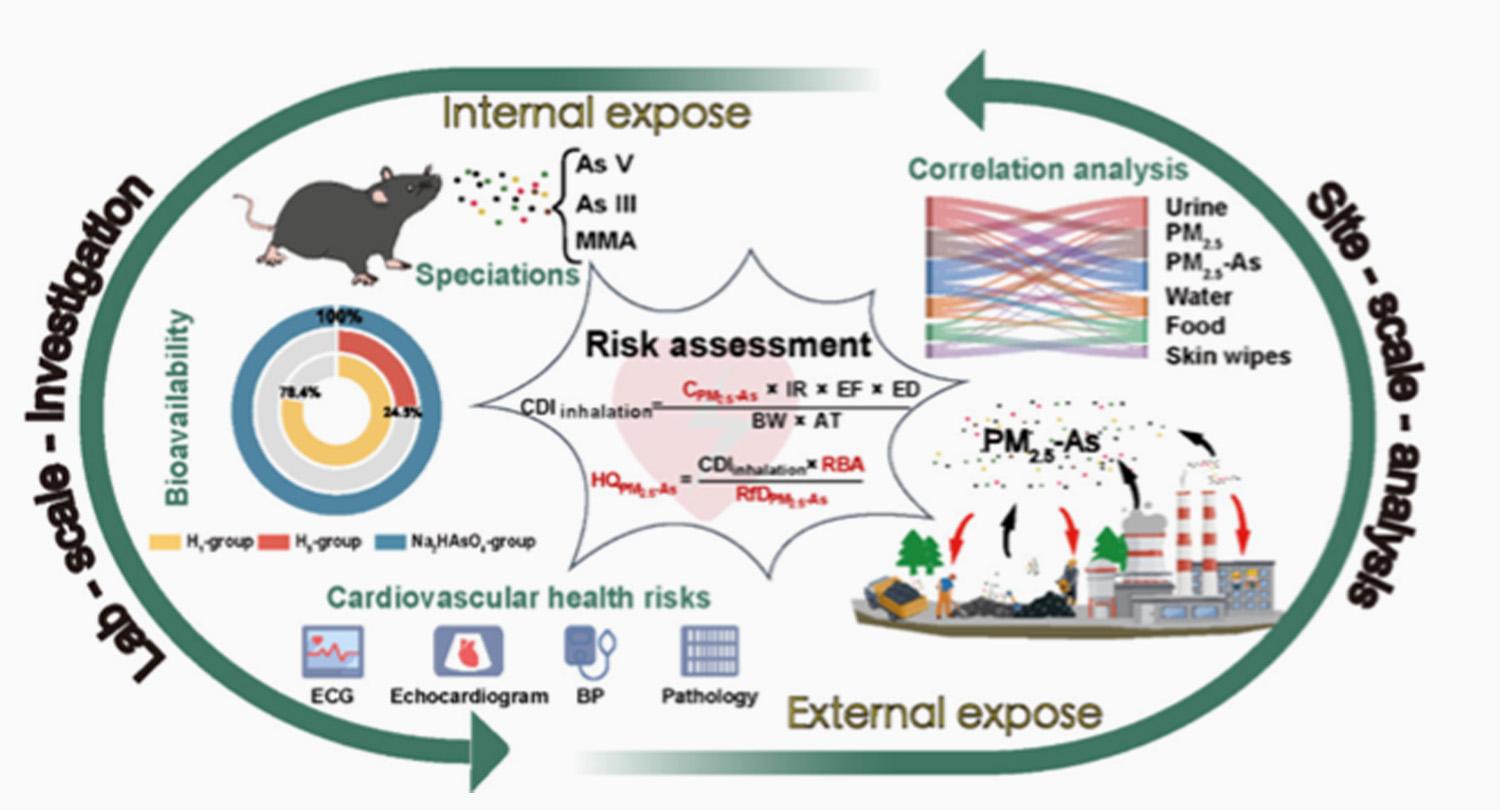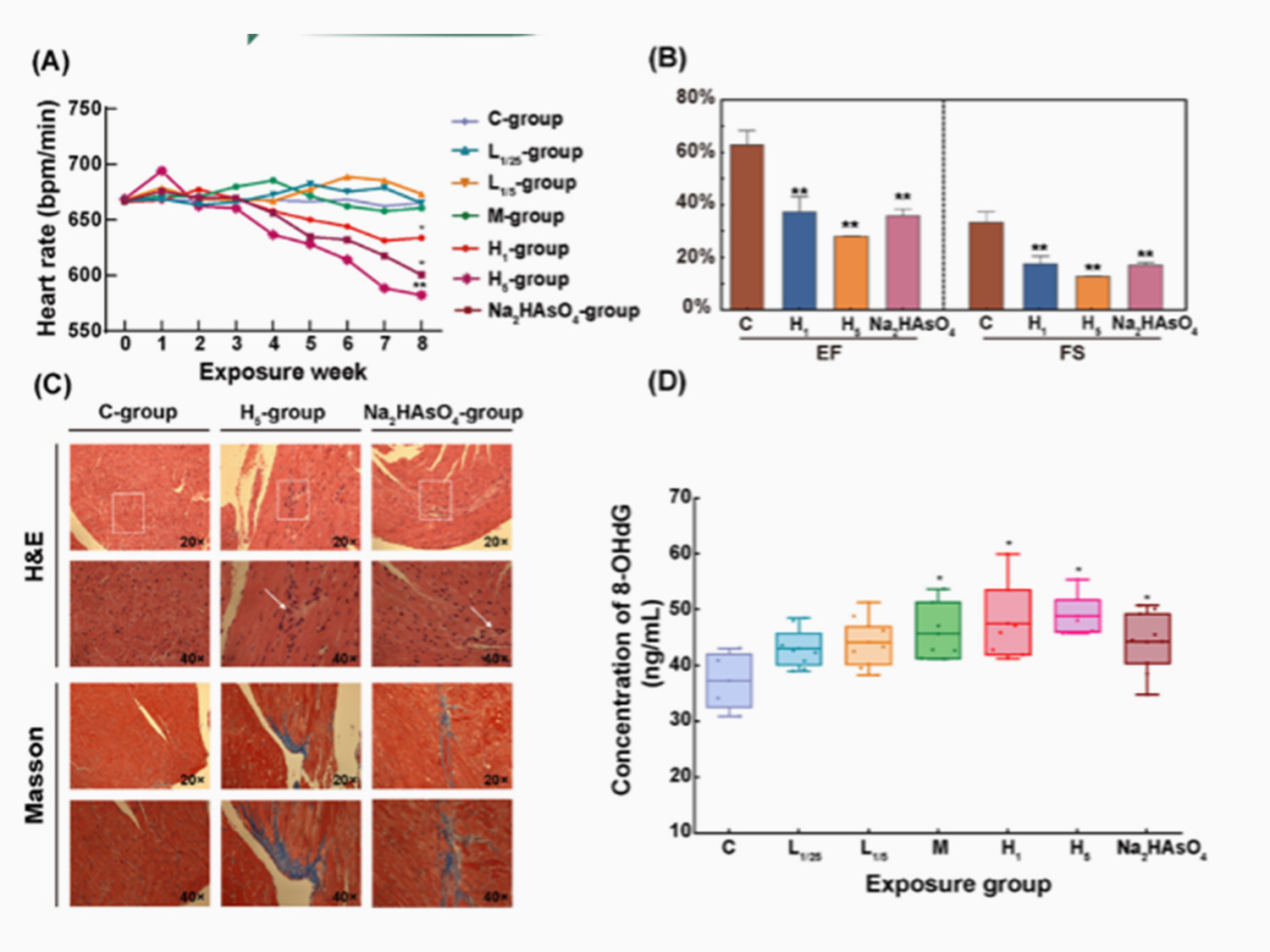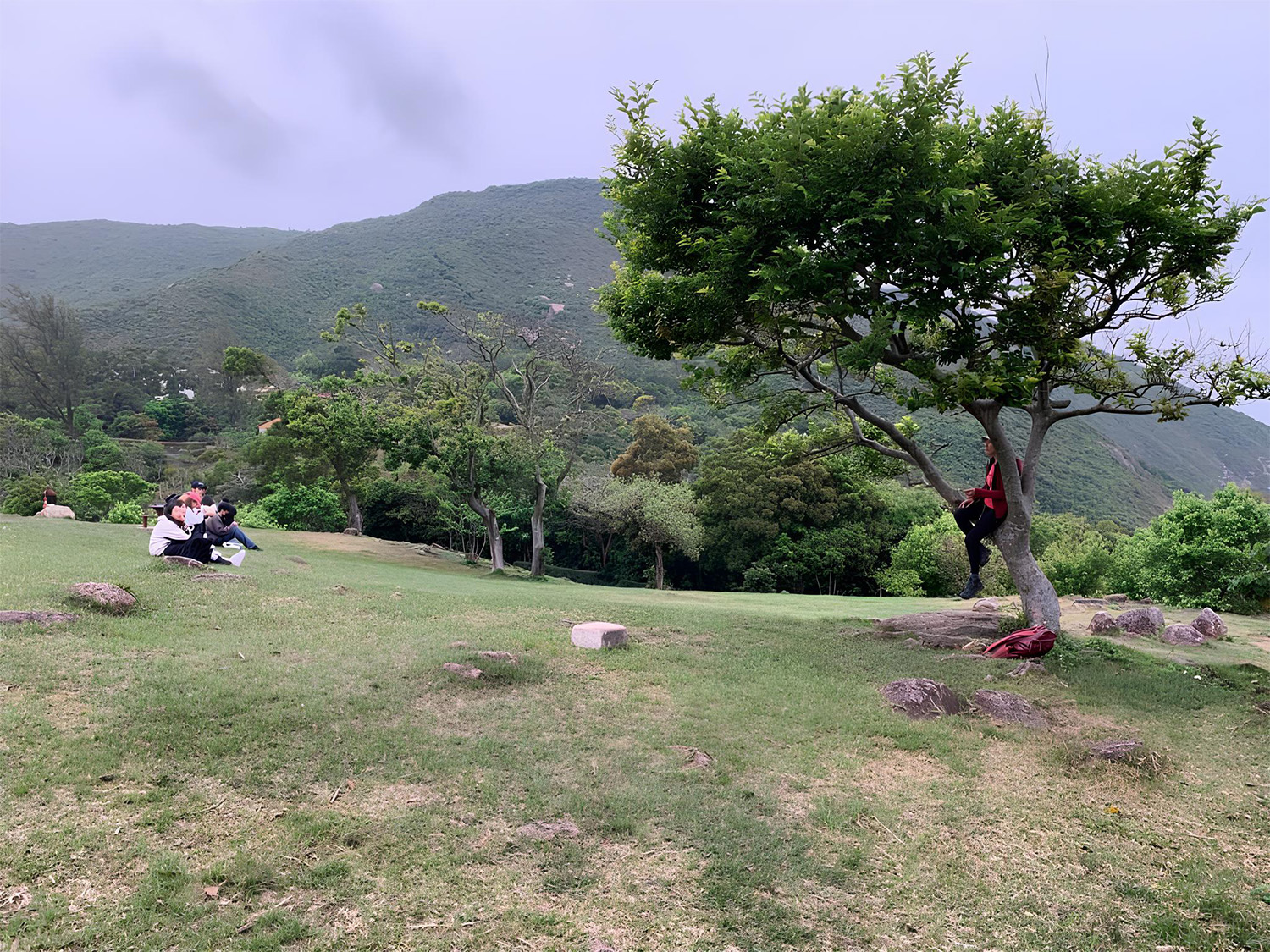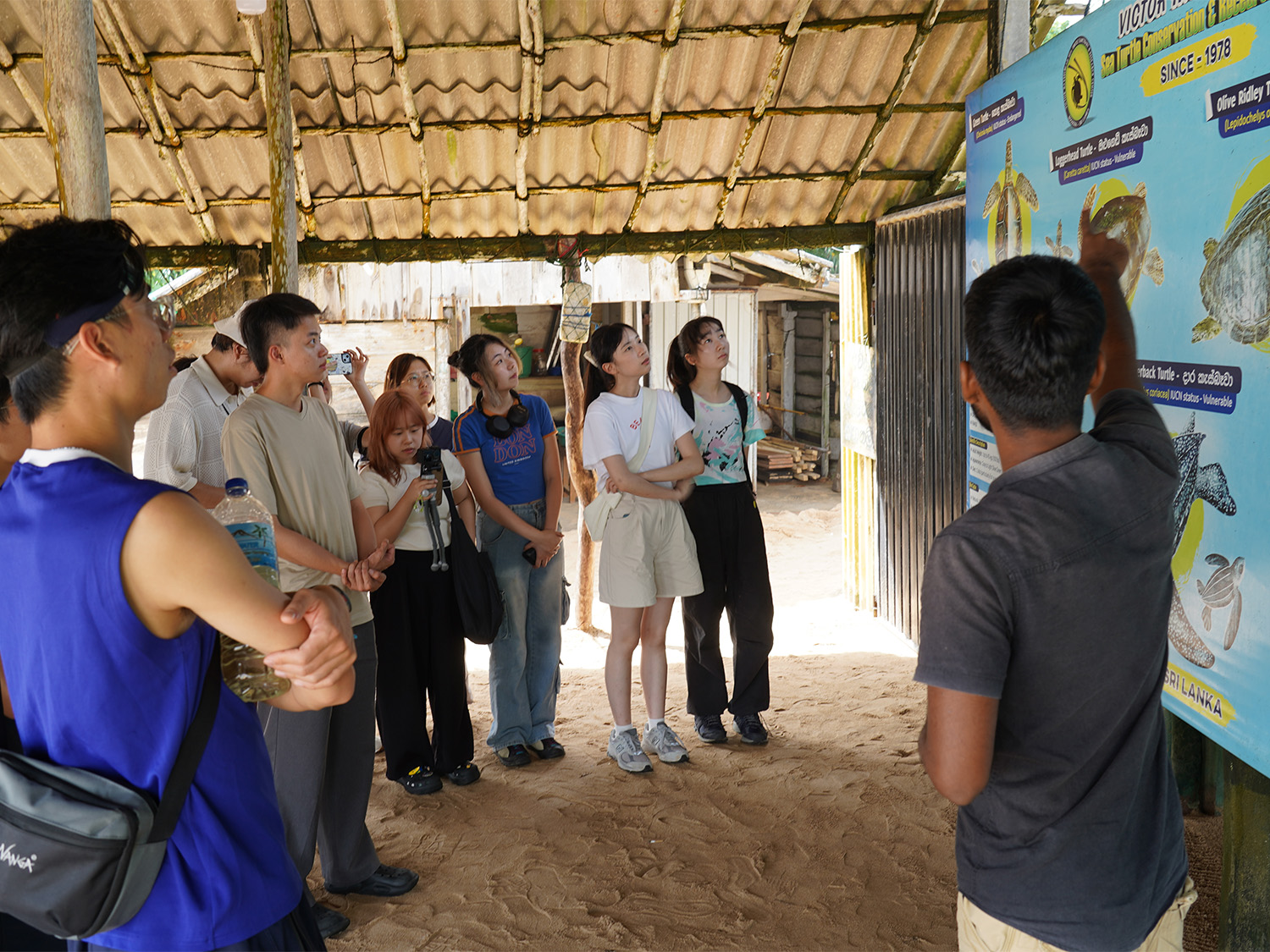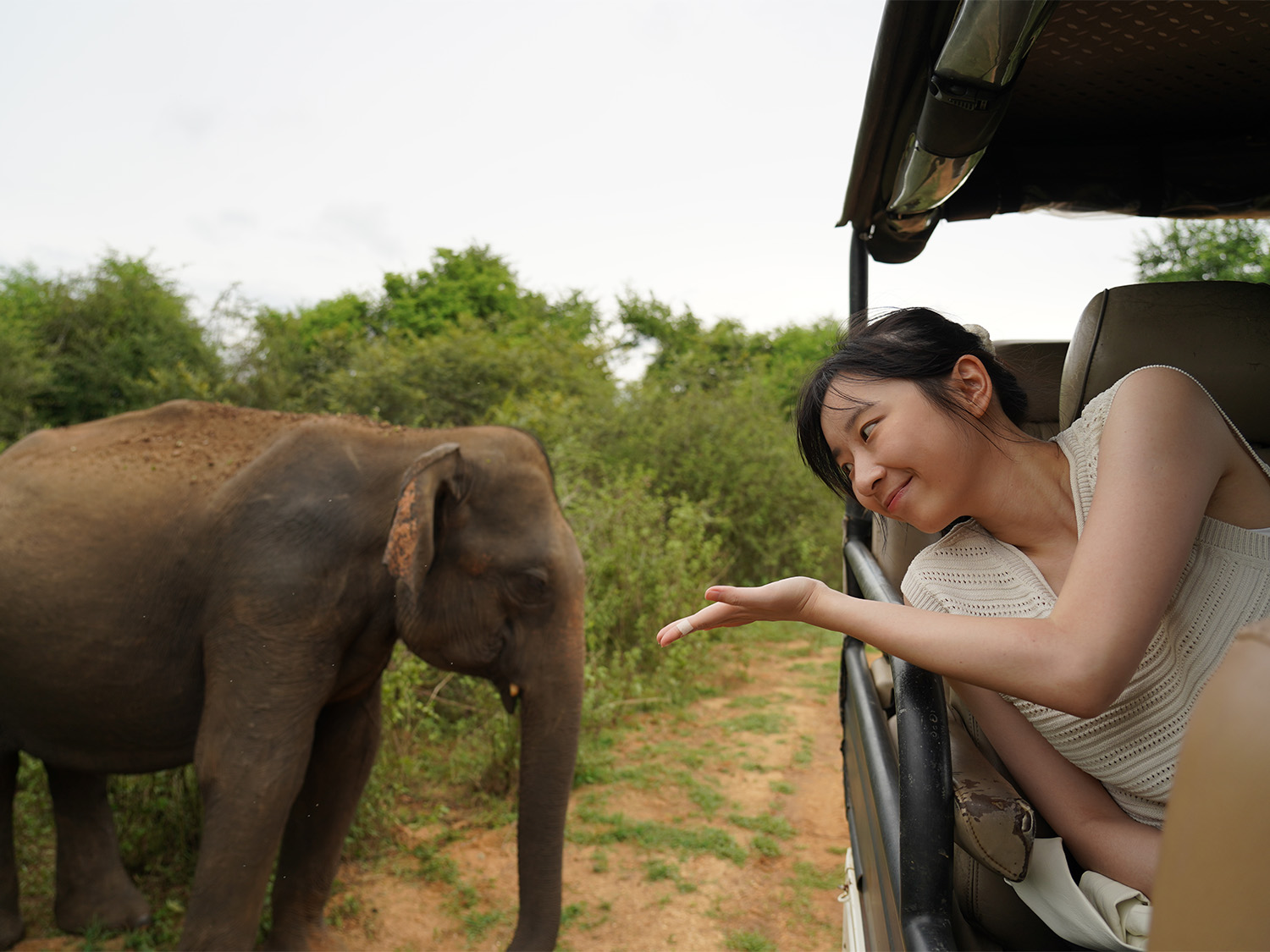SDG 15: Life on Land
The General Education capstone course "Leisure and Well-Being: Coping with Stress," taught by Dr Chan Kwok-shing, enabled 99 students to explore stress management skills through a deepened connection with nature and an appreciation of its profound impact on physical, mental, and emotional health. Under the guidance of Ms Amanda Yik, the founder of Shinrin Yoku, the students participated in a forest bathing session to learn effective stress-coping strategies and strengthen their bond with nature. This experience brought to light the pivotal role that nature plays in mitigating stress and enhancing well-being, and inspired the students to advocate for conservation and sustainable ecosystem stewardship. The course highlighted the essential relationship between personal well-being and the health of our environment, guiding students towards a balanced and sustainable lifestyle.
Embracing nature and conservation: A retrospective on the Sri Lanka Eco and Service Tour
The Sri Lanka Eco and Service Tour, organised by the Leadership Qualities Centre, offered 14 students a rich experience deeply connected to nature, immersing them in conservation efforts and eco-friendly practices. This Service Tour was supported by community partners, Kadoorie Farm and Botanic Garden, Ecobus Foundation, and The Young Men's Christian Association of Rambukkana. The adventure began with a trek through the misty trails of Horton Plains National Park, a crucial ecosystem where students learned about wildlife conservation. A visit to a tea plantation showcased sustainable agricultural practices, while a guided safari jeep tour in Udawalawe National Park provided encounters with wildlife in its natural habitat. The journey continued with a visit to a sea turtle conservation centre, highlighting efforts to protect marine life. Lastly, the students talked to local beach cleaners and environmentalists, gaining insights into the preservation of marine ecosystems and broader environmental protection efforts. Each activity aimed to foster a connection with nature and inspire a commitment to protecting the planet’s terrestrial and aquatic biodiversity, this initiative ultimately benefited 100 individuals.


Department of Mathematics
Authors: Ziyu LIN, K.H. CHENG, Dedi YANG, Fei XU, Guangqin SONG, Ran MENG, Jing WANG, Xiaolin ZHU, Michael NG, Jin WU*
*Corresponding author
Climate change can make changes to where species live, how they interact, and the timing of biological processes, which could fundamentally transform the ecosystems. This research examines temperate mixed forest ecosystems which are composed of various tree functional types (TFTs) that differ in canopy structure, phenology, and physiological response to climate change. An accurate characterisation of the composition of these TFTs is important for quantifying land surface carbon, energy, and water cycling, as well as process-based simulation of forest dynamics. By using advanced computational and statistical techniques, the space-time TFT variability of satellite signatures is analysed and an accurate and generalisable approach is provided for sub-pixel fraction mapping across temperate mixed landscapes and mixed forest ecosystems.
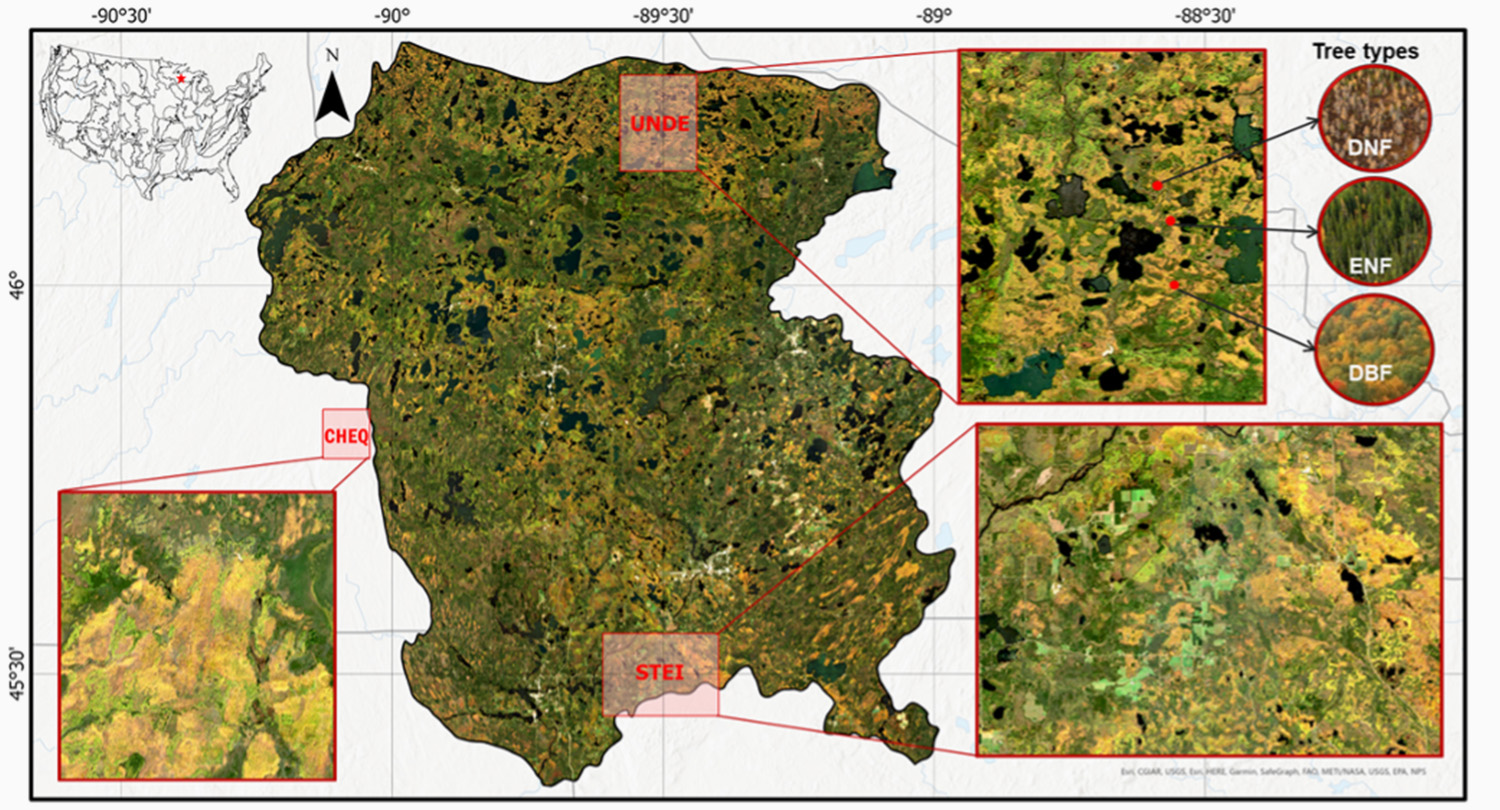

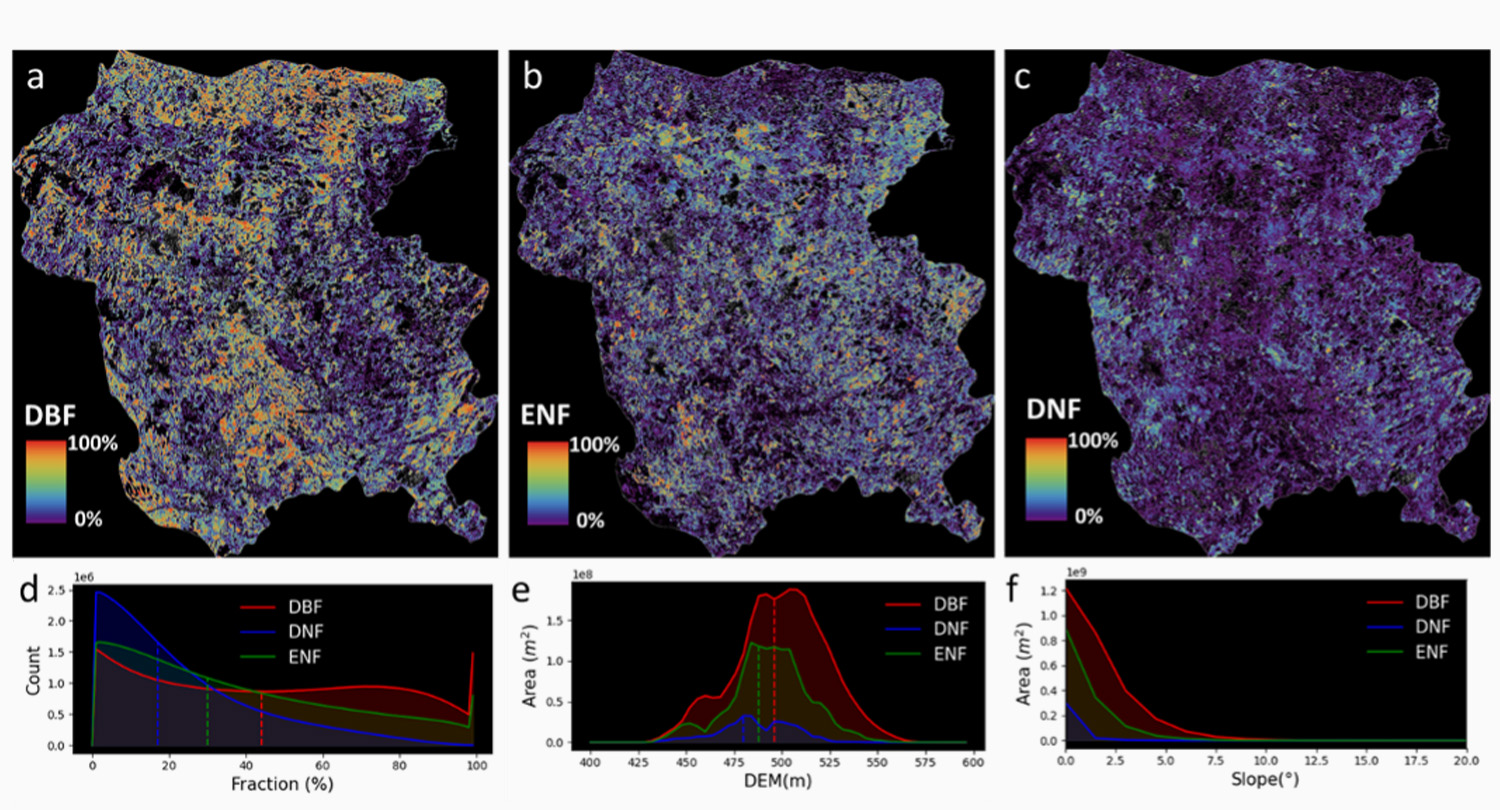

Assessing the impact of PM2.5-bound arsenic on cardiovascular risk among workers in a non-ferrous metal smelting area
Department of Chemistry
Zenghua QI, Qiting ZHAO, Zixun YU, Zhu YANG, Jie FENG, Pengfei SONG, Xiaochong HE, Xingwen LU, Xin CHEN, Shoupeng LI, Yong YUAN, Zongwei CAI*
*Corresponding author
This study examined the cardiovascular risks linked to inhaling arsenic-laden fine particulate matter (PM2.5) at a non-ferrous metal smelting site, revealing arsenic exposure levels up to 120 times the national standards in the PM2.5 pollutants, primarily in the form of As(V) and As(III). In the following animal exposure study using this environmental relevant concentration, arsenic bioaccumulation in a mouse model reached equilibrium after 8 weeks, with a bioavailability of 24.5%. The toxicological explore in animals showed that PM2.5-As exposure led to significant cardiac injury and dysfunction. The findings underscored the urgent need for stricter regulations and enhanced protective measures to safeguard workers’ health in such environments.
